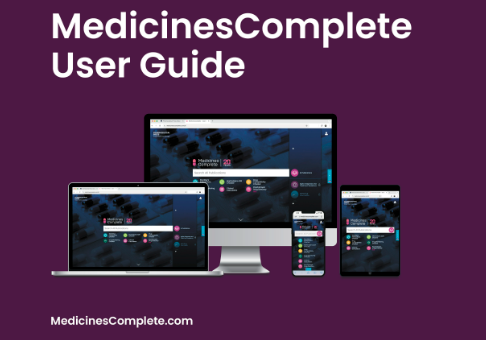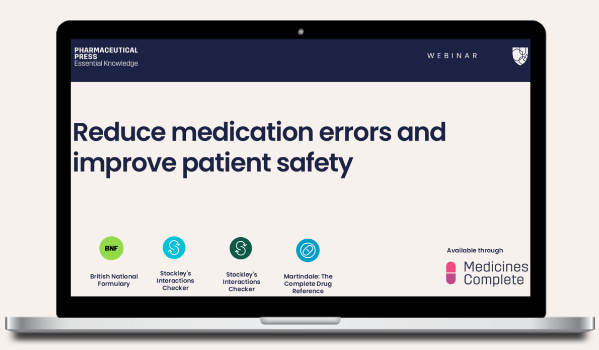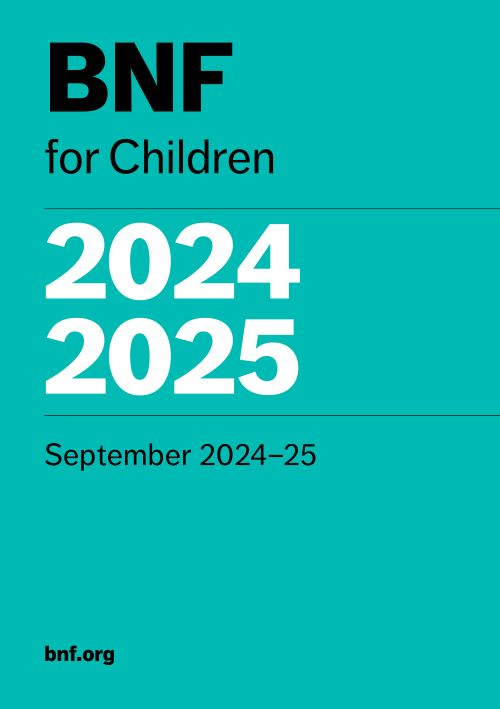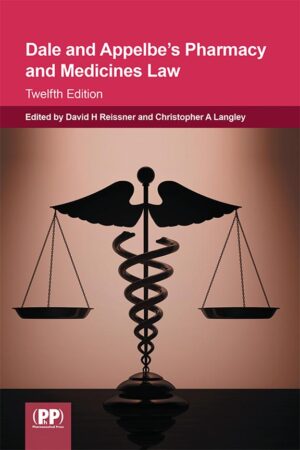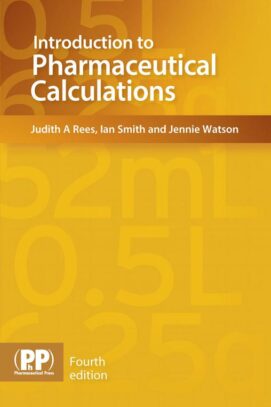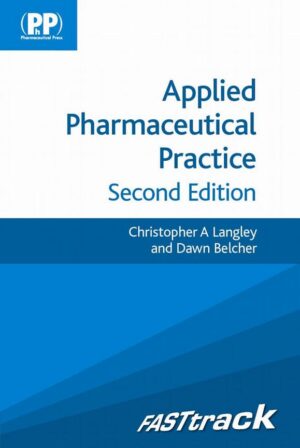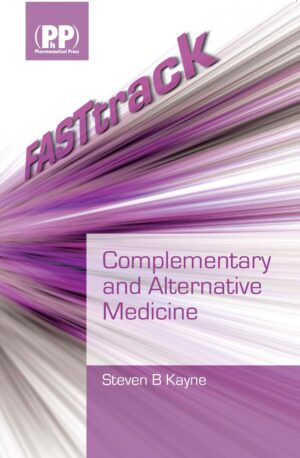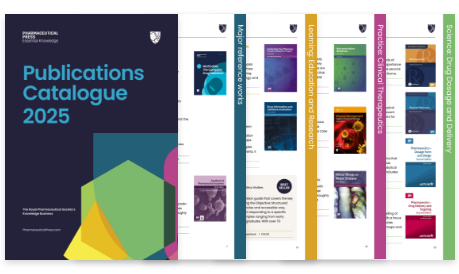Description
Practical and evidence-based, BNF for Children (BNFC) is the only child-focused drug formulary in the world that is both independent, and has rigorous, accredited content creation processes.
Relied on by health professionals who prescribe, dispense, and administer medicines to paediatrics, BNFC supports confident decision-making at the point of care. including best practice guidelines and advice from a network of paediatric experts. The process is overseen by a paediatric formulary committee.
Extensive content updates in the BNF for Children 2024-2025 edition include:
New monographs for:
- Adacel ® [diphtheria with tetanus and pertussis vaccine] for immunisation against diphtheria, tetanus, and pertussis, and passive immunisation against pertussis in pregnant women
- Ebglyss ® [lebrikizumab] for moderate to severe atopic eczema
- Entresto ® [sacubitril with valsartan] for symptomatic chronic heart failure with left ventricular systolic dysfunction
- Evkeeza ® [evinacumab] for homozygous familial hypercholesterolaemia
- Litfulo ® [ritlecitinib] for alopecia areata
- Qdenga ® [dengue vaccine] for immunisation against dengue
- Skyrizi ® [risankizumab] for Crohn’s disease
- Slynd ® [drospirenone] for contraception
- Trulicity ® [dulaglutide] for type 2 diabetes mellitus
- Vaxchora ® [cholera vaccine (live)] for immunisation against cholera
- Velsipity ® [etrasimod] for ulcerative colitis
- Wegovy ® [semaglutide] for weight management
MHRA advice on:
- Aripiprazole: risk of pathological gambling
- Codeine phosphate linctus (codeine oral solutions): reclassification to prescription-only medicine
- Direct-acting oral anticoagulants (DOACs): paediatric formulations
- Hyoscine hydrobromide patches (Scopoderm ® 1.5mg patch or Scopoderm ® TTS patch): risk of anticholinergic side effects, including hyperthermia
- Isotretinoin (Roaccutane ®): introduction of new safety measures, including additional oversight of the initiation of treatment for patients under 18 years of age
- Janus kinase (JAK) inhibitors: new measures to reduce risks of major cardiovascular events, malignancy, venous thromboembolism, serious infections and increased mortality
- Methotrexate: advise patients to take precautions in the sun to avoid photosensitivity reactions
- Nitrofurantoin: reminder of the risks of pulmonary and hepatic adverse drug reactions
- Non-steroidal anti-inflammatory drugs: potential risks following prolonged use after 20 weeks of pregnancy
- Pseudoephedrine hydrochloride: very rare risk of posterior reversible encephalopathy syndrome (PRES) and reversible cerebral vasoconstriction syndrome (RCVS)
- Quinolones: must now only be prescribed when other commonly recommended antibiotics are inappropriate, reminder of the risk of disabling and potentially long-lasting or irreversible side effects, and the risk of suicidal thoughts and behaviour
- Semaglutide (Ozempic ®), Liraglutide (Saxenda ®): vigilance required due to potentially harmful falsified products
- Statins: very infrequent reports of myasthenia gravis
- Valproate: full pack dispensing, re-analysis of study on risks in children of men taking valproate, reminder of current Pregnancy Prevention Programme requirements; information on new safety measures to be introduced in the coming months, new safety and educational materials to support regulatory measures in men and women under 55 years of age.
- Vitamin B12: advise patients with known cobalt allergy to be vigilant for sensitivity reactions.
Other significant changes include updated guidance on:
- Adverse reactions to drugs: updated information on MHRA Yellow Card scheme (including interactive Drug Analysis Profiles and the Yellow Card biobank) and medication error reporting
- Appendix 1 interactions: pharmacodynamic effects drug groups revalidated and updated
- Baclofen expression of doses for chronic severe spasticity of voluntary muscle
- Benzathine benzylpenicillin, benzylpenicillin sodium: important safety information
- Budesonide dosing for modified-release capsules
- Budesonide with formoterol (Symbicort 200/6 Turbohaler ®) as reliever therapy for mild asthma
- Carvedilol for primary prevention of decompensated cirrhosis and prevention of bleeding oesophageal varices
- Controlled drugs and drug dependence: control of nitrous oxide and prescription requirements for Schedule 2 and 3 Controlled Drugs
- Dalteparin sodium for treatment of symptomatic venous thromboembolism
- Erythromycin: pregnancy advice
- Guidance for drug interactions between HIV antiretroviral therapy and contraceptives
- Hyoscine butylbromide: update to important safety information
- Malaria prophylaxis
- Management of adrenal insufficiency
- Management of diabetic hyperglycaemic emergencies in individuals aged 16-18 years
- Management of otitis media with effusion
- Management of type 2 diabetes
- Management of syphilis
- Meningococcal vaccines
- Morphine: important safety information regarding availability of different strengths of oral solution
- Pneumococcal vaccine
- Insulin degludec (Tresiba ®): potential for inappropriate dosing of insulin when switching (Tresiba ®) products [National Patient Safety Alert advice]
- Prescription requirements for Schedule 2 and 3 Controlled Drugs
- Prevention of secondary cases of diphtheria
- Propranolol hydrochloride for primary prevention of decompensated cirrhosis and prevention of bleeding oesophageal varices
- Rabies vaccine
- Selective serotonin re-uptake inhibitors: pregnancy and breast-feeding advice
- Tranexamic acid for haemorrhage
- Vaccination, general principles: vaccination during pregnancy and breast-feeding, and for individuals with asplenia, splenic dysfunction, or complement disorders
- Vaccine drug monographs: class restructure into live and inactivated monographs
- Valproate: organisations to prepare for new regulatory measures for oversight of prescribing to new patients and existing female patients [National Patient Safety Alert advice]
- Varicella-zoster vaccines
BNF for Children is published jointly by BMJ, Pharmaceutical Press, the publishing division of Royal Pharmaceutical Society, the Royal College of Paediatrics and Child Health and the Neonatal and Paediatric Pharmacy Group.



